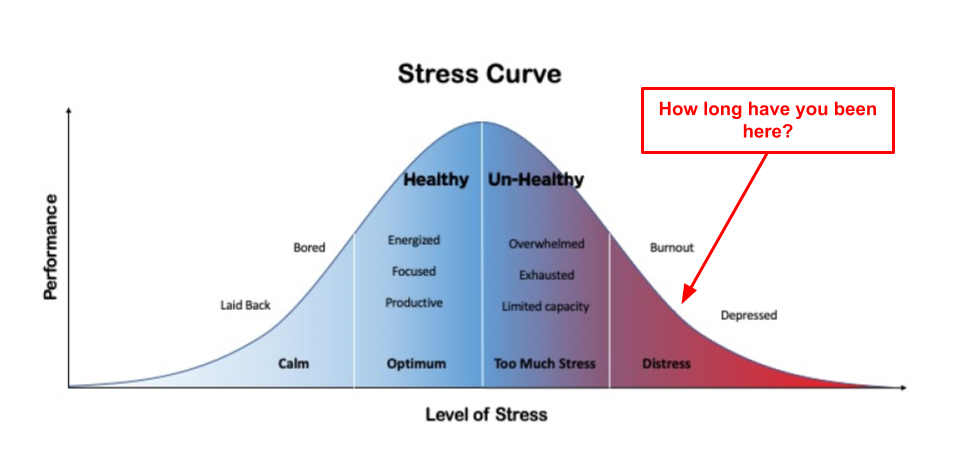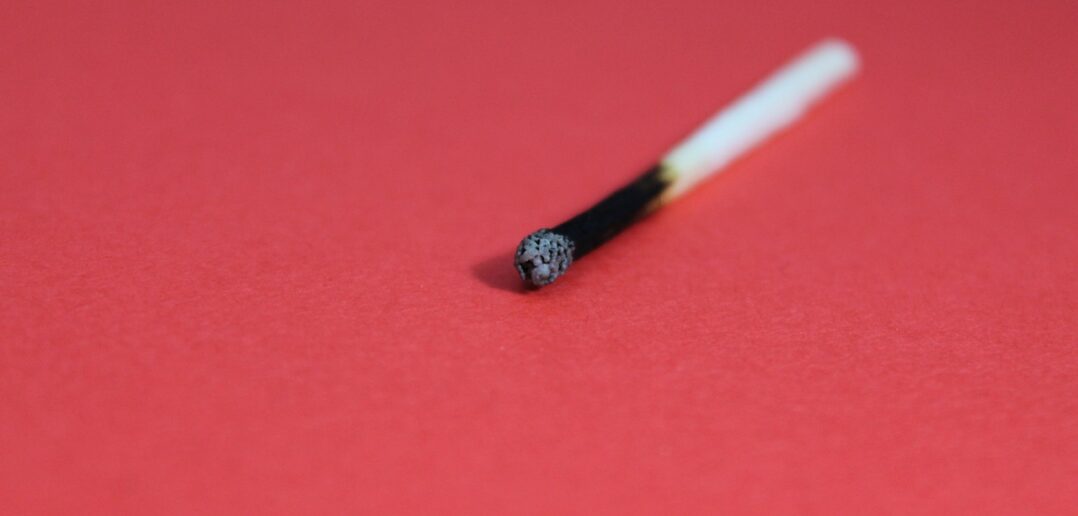A popular question I get asked frequently by salespeople and sales leaders is: How do I know if I’m experiencing burnout?
Burnout has become an increasingly popular topic these days, especially for those working within sales. Salespeople tend to experience burnout more often than other departments because they’re more frequently exposed to:
- Unrelenting stressors (rejection, lost deals, upset clients, etc.)
- Daily pressure to perform at a high-level.
- Lack of control in how goals and sales targets are set.
- Lower job security.
- Lower financial security.
- Lower recognition (consistently starting back at zero).
- Lower meaning and fulfillment through work.
- Inability to take time off or vacation.
- Poor work life balance.
This is not to say that other departments don’t experience burnout (they very much do), but the extreme demands on salespeople each day make it much harder for individuals to cope with stress.
That’s why it’s not surprising that data from the 2021 Mental Health in Sales survey uncovered:
- 76% of salespeople are feeling stressed.
- 63% of salespeople described themselves as tired or always tired.
- 65% of salespeople are having trouble sleeping.
- Only 31% of salespeople find themselves in a good or positive mood. The rest described their mood as irritable, highly annoyed, aggravated, short-tempered or less interested in others.
**Updated data from the 2022 Mental Health In Sales survey coming soon! Sneak peek – it’s gotten worse!**
Why Burnout Is Often Defined Wrong
When aspects of our lives like sleep and the ability to offload stress on a daily basis are impacted, we find ourselves on the path towards burnout. Burnout is an extended period of time in which we feel mentally and physically exhausted from being in a state of distress for too long.
The key phrase in the definition above is extended period of time.
Many online definitions of burnout make it hard for salespeople to identify if they have burnout, because burnout is more nuanced than something you have or don’t have. Take for example these job burnout questions taken from the Mayo clinic, designed to help someone determine if they’re experiencing burnout:
- Have you become cynical or critical at work?
- Do you drag yourself to work and have trouble getting started?
- Have you become irritable or impatient with co-workers, customers or clients?
- Do you lack the energy to be consistently productive?
- Do you find it hard to concentrate?
- Have your sleep habits changed?
- Do you lack satisfaction from your achievements?
- Do you feel disillusioned about your job?
- Are you using food, drugs or alcohol to feel better or to simply not feel?
- Are you troubled by unexplained headaches, stomach or bowel problems, or other physical complaints?
While these are great questions, every single salesperson I know (myself included), would likely answer yes to most of the questions above after a tough day selling.
Does this mean they’re experiencing burnout?
Not necessarily. It might indicate early signs of burnout, but it could also mean they’re simply tired after a hard day’s work and in need of a good night’s rest.
Project Mamba: Stop Letting Stress Impact Your Commission Check
The Stress Curve and Burnout
Burnout is not black and white and instead something we experience on a spectrum. There are degrees of burnout, just like there are degrees of skin burn attributed to a burn victim. In order to determine where you fall on a burnout spectrum, you need to consider three key factors in how you answer the questions above.
- Intensity
- Frequency
- Duration
These factors will help you determine the intensity and length of time you’ve been in distress and hence, the degree of burnout you’re experiencing.

Image credit: https://missionhr.org/care-and-wellbeing/emotional-resilience/mental-health-resource-page/
We can then use these factors to go back and answer the questions from the Mayo Clinic in a meaningful way. Here are some examples to see how our degree of burnout changes, depending on the answers we give.
Example #1: Do you lack the energy to be consistently productive?
Sample Answer: I’ve been feeling extremely low energy (intensity) every day (frequency), but I’ve only been feeling this way for the last few days (duration).
- Intensity: High
- Frequency: High
- Duration: Short
In this case, the intensity and frequency of your symptoms are very high, but the duration is still short because you’ve only been feeling this way for a few days. As a result, it’s likely that you are experiencing burnout to less of a degree than someone who has been feeling this way for several months (Long Duration).
It’s also possible you may be fighting off an illness, jet lagged or a thousand other factors that impact your energy levels for a few days, versus full blown burnout.
Example #2: Are you using food, drugs or alcohol to feel better or to simply not feel?
Sample Answer: I typically have 4 glasses of wine (intensity) on Friday’s (frequency) to blow off steam, and have been doing this for the last few months (duration).
- Intensity: Medium
- Frequency: Low
- Duration: Long
Now coping with alcohol, drugs or food is never recommended, but again it should be clear with this example how easy it is for anyone to answer “Yes” to these questions without proper context.
Someone having a few drinks on Friday evenings to blow off steam, is way different than someone drinking half a bottle of wine every night for the last 2 years. The level of concern, degree of burnout and the difficulty required to break these habits are very different.
Burnout Awareness Exercise: I’ve created a Burnout Calculator using the questions above and have modified them to include intensity, frequency and duration to help you get a better understanding of your burnout levels. The higher your score, the greater the likelihood that burnout is preventing you from performing your best in sales.
Tending To Your Inner Fire
Managing burnout, especially in sales, requires daily attention and practice. When we’re more aware of changes (intensity, frequency, duration) to our thoughts, feelings and behaviors, we can take actions that prevent burnout before it starts to feel hopeless.
Trying to restart a fire that has died down is always easier to do if you have a small flame or some burning embers than trying to restart a fire which has totally burnt out. Reinvigorating your Mental Health is no different. This is why building awareness and tending to your inner fire on a regular basis is so important.
Hopefully these questions and the exercise above helps you manage your burnout and take better care of yourself going forward.
To learn more ways to prevent burnout and improve your Mental Health in sales; checkout the Project Mamba community and programs for sellers here.
Project Mamba: Stop Letting Stress Impact Your Commission Check
About The Author

Jeff Riseley is currently the Founder of the Sales Health Alliance and Mental Health Advocate. With over a decade of sales experience – Jeff understands the importance of Mental Health in achieving peak sales performance.
Jeff combines his sales and Mental Health expertise to improve sales performance through mental health best practices. His strategies have helped sales teams become more motivated, resilient and better equipped to tackle stressful events within sales.





2 Comments
Pingback: How Resentment Kills Motivation In Sales - Sales Health Alliance
Pingback: Sales Burnout - Sales & Profit